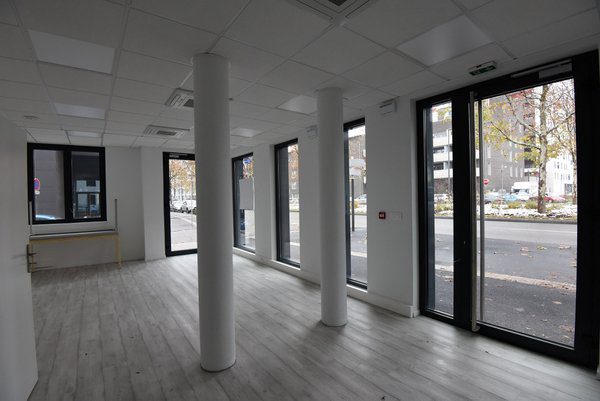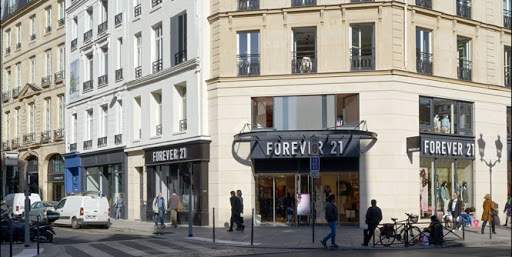Commercial Property Valuation
When selling or purchasing commercial property, there is a strong chance that you will have to call upon a valuation of the asset. With this being the case, it is helpful to understand the process involved in valuing commercial property and the methodology used by professional valuers.
If you or your clients own commercial property in France and are seeking independent valuation advice, Berthier & Associés have more than 40 years of experience in this domain, valuing commercial real estate for all purposes. For an English-speaking introduction to the specialist valuation services that can be provided, contact Samuel Thompson via email at [email protected] or telephone +44 7933 239126 / +33 07 45 55 81 46.


Why are Valuations of Commercial Property Required?
Just as with residential property, the valuation of commercial real estate is an impartial opinion on the value of the asset in question. However, rather than single houses or apartments, commercial property valuation concerns assets such as offices, retail shops or warehouses. These valuations are commonly used to determine the likely sale price of a property on the open market, but they are also important for underwriting purposes. Lenders will not generally advance more than the value of a property, so an accurate valuation will help them to determine the amount they are willing to offer and manage their risks.
A valuation is equally useful in the perspective of an investment. Prior to purchasing a property, the valuation can provide a guide to the price that one should be prepared to pay, given the current market conditions. Furthermore, once a property is purchased, a valuation can aid the proprietor to make informed decisions as to the type of investments or renovations that would be financially prudent to make to the asset.
What are the Differences Between Commercial and Residential Valuations?
Although valuations are used in both the commercial and residential domains, the processes and methodology leading to the determination of the final figure are quite different. For residential property, valuers generally use the sales prices of similar properties (often termed comparables) to guide their opinion. They will then make adjustments according to the characteristics and unique attributes of the subject property. Conversely, in the case of the valuation of a commercial property, the emphasis is placed on the revenue that the asset is able to generate.
Valuing commercial property is therefore usually a more involved and lengthy process. As many residential properties can be very similar to one another, the method of using comparables is easier to apply. However, commercial properties are more idiosyncratic in nature, which necessitates a more in-depth analysis by the valuer to determine how the different aspects of the asset impacts on the value. This naturally implies that commercial property valuations are more costly than those for residential purposes, although this will vary on a case-by-case basis.

What Methods are Used to Value Commercial Real Estate?
Costs Method
Although this approach is not used particularly frequently, it can still be useful in the cases of unique or newly constructed buildings. This method involves examining how much it would cost to reconstruct the building anew, taking in to account the price of the land, materials and labour. The resulting figure will correspond to how much it would cost to construct the same building in current market conditions. The following formula summaries this approach:
Market Value = Land price + Construction costs – Depreciation
Investment Method
This approach, taking in to consideration the revenue able to be generated by the property, is by far the most utilised method of valuation for commercial real estate. The valuer will use net revenue and a capitalisation rate to determine the value that the property could be sold for given the current market conditions.
To determine the capitalisation rate, the valuer will compare the sums invested to the rental value on which the landlord bases their calculation of the rent that a tenant must pay. The calculation of the rate of return is thus as follows:
Rate of Return = 100 x (Monthly Rent x 12) / Purchase Price
The choice of a rental yield to apply must be in accordance with the market conditions to attract investors. The yield will be impacted by factors such as the location and type of property. A too low yield will not be attractive to new investors, but an overly high yield will raise suspicions.
The determination of net revenue will result from an assessment of the market rent for the property. This is defined as the amount of rent a tenant would be expected to pay on the open market. It is important to appreciate that the market rent may differ to that fixed at the date of the initial lease, especially if there have been evolutions in the market conditions since then. To translate this to a net revenue figure, the costs borne by the Landlord associated with operating the property are deducted from the market rent.
Once the capitalisation rate and net revenue are established, the following formula will be used to estimate the Market Value of the asset:
Market Value = Net Revenue / Capitalisation Rate
Comparison Method
As previously stated, the comparison method is most commonly used in the valuation of residential properties. This approach uses comparables, or the sales price (in sqm) of nearby commercial properties to determine the value of the subject property.
However, comparables are much less straightforward to unearth for commercial properties. A valuer may have to widen their search area or look in to less recent transactions, both of which will impact on the accuracy of the valuation. This methodology is therefore more frequently employed by individual investors than professional valuers.
Gross Rent Multiplication Method
This approach is another one commonly more utilised by individual investors than professional valuers. It is rather seen as a quick and simple estimation, without having full information at one’s disposition than a fully considered valuation.
If you or your clients own commercial property in France and are seeking independent valuation advice, Berthier & Associés have more than 40 years of experience in this domain, valuing commercial real estate for all purposes. For an English-speaking introduction to the specialist valuation services that can be provided, contact Samuel Thompson via email at [email protected] or telephone +44 7933 239126 / +33 07 45 55 81 46.
